Chow Chows, with their lion-like mane and stoic personality, are a unique and ancient breed. Despite their medium size, their dietary needs are specific due to their less active nature and propensity for certain health issues. This guide will explore how to determine the right amount of food for your Chow Chow, taking into account the calories contained in the food, and provide approximate amounts and the potential monthly cost.
1. Nutritional Requirements of Chow Chows
Chow Chows need a well-balanced diet rich in proteins to support muscle development, fats for energy, and carbohydrates for fiber and digestion. They also require essential vitamins and minerals to maintain their dense coat and overall health.
2. Estimating Daily Food Portions
An average adult Chow Chow typically requires 2 to 2.5 cups of high-quality dry dog food per day, divided into two meals. However, this can vary based on the dog’s weight, age, activity level, and the food’s caloric content.
3. Feeding a Chow Chow Puppy
Chow Chow puppies need more frequent meals — about three to four times a day — with a diet formulated for puppies to support their growth. The amount will increase as they grow, so monitoring their development and adjusting food intake is key.
4. Transitioning to Adult Chow Chow Diets
As Chow Chow puppies transition to adulthood, typically around one year of age, their caloric needs decrease. This section would detail how to adjust portion sizes and meal frequency for adult Chow Chows.
5. Monitoring an Adult Chow Chow’s Weight
Maintaining an ideal weight is critical for a Chow Chow’s health. This part of the article would discuss how to adjust your dog’s diet based on weight gain or loss and how to recognize the signs of obesity.
6. Senior Chow Chow Nutritional Needs
Senior Chow Chows often require fewer calories and may benefit from diets formulated for senior dogs, which are typically lower in fat and higher in fiber.
7. Adjusting Food Intake Based on Activity Level
Chow Chows are less active than many other breeds but still need regular exercise. Their food intake should be adjusted based on their activity level to avoid weight gain, which can lead to health issues.
8. Understanding Chow Chow Health and Diet
Chow Chows may have breed-specific health concerns that can be managed or mitigated through diet, such as hip dysplasia and eye conditions. This section would outline how certain foods or supplements can support health issues.
9. Calculating the Monthly Cost of Feeding a Chow Chow
The monthly cost of feeding a Chow Chow can vary depending on the type of food (premium, raw, homemade) and the amount needed. This section would provide an estimate of monthly feeding costs, which can range from $40 to $70.
10. Common Questions and Tips on Feeding Chow Chows
Concluding the article, this section could address frequently asked questions about feeding Chow Chows and offer practical tips to ensure they receive a balanced diet.
Our 5 Top Foods for Chow Chow
The diets were selected by our founder Justin Palmer, a certified canine nutrition expert, specifically with Chow Chow in mind:
| Food | Pros | Cons |
|---|---|---|
|
|
|
|
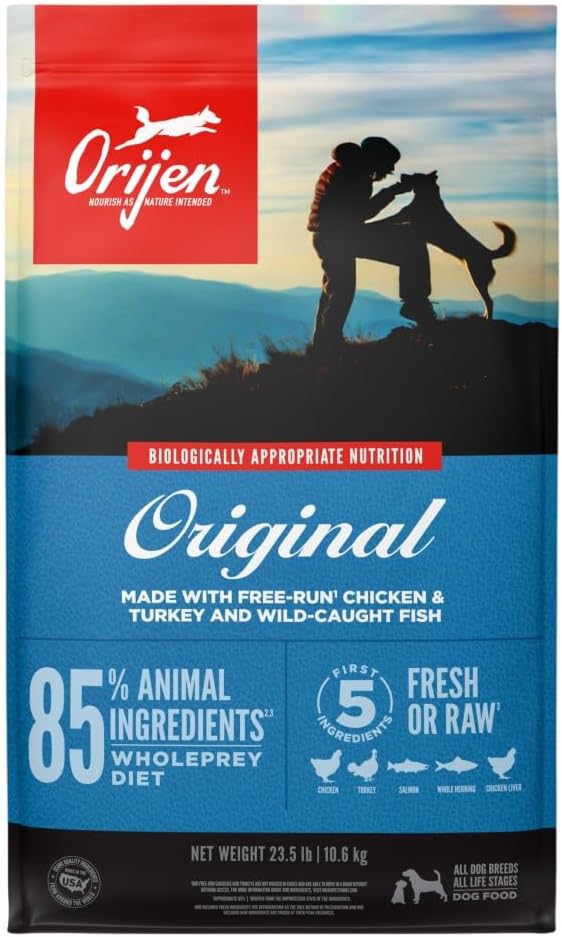
Check Today's Price on: |
|
|
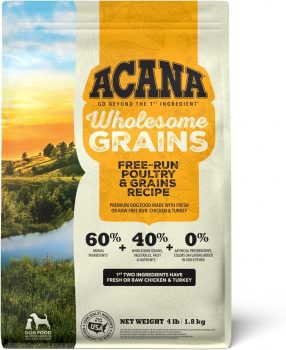
Check Today's Price on: |
|
|
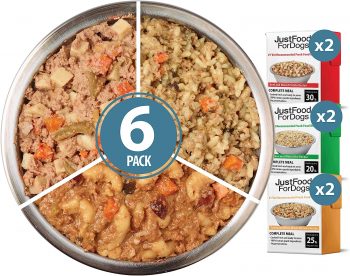
Check Today's Price on: |
|
|
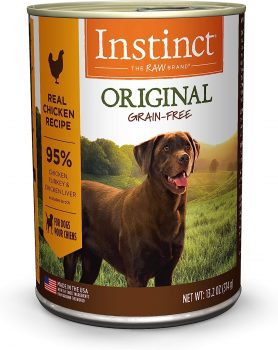
Check Today's Price on: |
|
|
Conclusion
Feeding your Chow Chow the right amount of food is crucial for their health and well-being. This guide offers foundational knowledge on determining the right food portions for your Chow Chow. Regular consultations with a veterinarian will ensure your Chow Chow maintains a healthy weight and a diet suited to their individual needs.
Frequently Asked Questions About Feeding a Chow Chow
1. How much should I feed my adult Chow Chow daily?
Adult Chow Chows typically require about 2 to 2.5 cups of high-quality dry dog food each day, divided into two meals. This amount can vary depending on the dog’s activity level, age, and the calorie content of the food. It’s important to monitor their weight and adjust their portions to maintain a healthy body condition.
2. What is the best type of food for a Chow Chow?
The best type of food for a Chow Chow is high in protein and low to moderate in fat, with complex carbohydrates for sustained energy. Look for foods that list meat as the first ingredient and that do not contain unnecessary fillers or artificial additives. It’s also beneficial to choose a formula that caters to medium-sized breeds.
3. How often should I feed my Chow Chow puppy?
Chow Chow puppies should be fed three to four times a day with a puppy formula that’s appropriate for their growth needs. As they approach adulthood, around 12 months, you can gradually transition to feeding them twice a day. Always adjust the portion size as they grow to avoid overfeeding.
4. Can Chow Chows eat grain-free diets?
Chow Chows can eat grain-free diets if they are well-formulated and provide all the necessary nutrition. However, it’s essential to consult with a veterinarian before switching to a grain-free diet to ensure it meets your dog’s specific health requirements.
5. Are there human foods that are unsafe for Chow Chows?
Yes, there are human foods that are unsafe for Chow Chows, as with all dogs. These include chocolate, grapes, raisins, onions, garlic, and anything with xylitol, as well as other items commonly found to be toxic to dogs. Always err on the side of caution and avoid feeding your Chow Chow human food without consulting a vet.
6. How can I prevent my Chow Chow from becoming overweight?
Prevent obesity in your Chow Chow by measuring their food portions accurately, limiting treats, and ensuring they get regular exercise. Monitor their body condition regularly and adjust their food intake as needed. If you’re concerned about your dog’s weight, consult with a veterinarian for a tailored diet plan.
7. Do Chow Chows have special nutritional needs?
Chow Chows do not have unique nutritional needs compared to other breeds, but they do require a well-balanced diet that’s appropriate for a dog of their size and activity level. Additionally, since they can be prone to certain health issues like hip dysplasia, it may be beneficial to include foods or supplements that support joint health.
8. What should I do if my Chow Chow is a picky eater?
For a picky Chow Chow, try to make mealtime more appealing by adding some wet food to their dry kibble or warming their food slightly to enhance the aroma. Always ensure that the food is fresh and introduce dietary changes gradually. If your Chow Chow’s picky eating habits persist, consult your veterinarian.
9. How much will it cost to feed my Chow Chow each month?
The cost of feeding a Chow Chow each month will depend on the type of food you choose, but it can typically range from $40 to $70. Premium or specialty diets may increase this cost, while more economical brands may be on the lower end of this range.
10. How should I adjust feeding amounts for an aging Chow Chow?
As Chow Chows age, they may become less active and their metabolic rate can slow down, potentially leading to weight gain if their diet is not adjusted. You may need to reduce their food intake and switch to a senior dog food formula that’s lower in calories and fat but still high in fiber and essential nutrients. Always consult your veterinarian when making dietary adjustments for an aging dog.
 Check Today's Price on:
Check Today's Price on: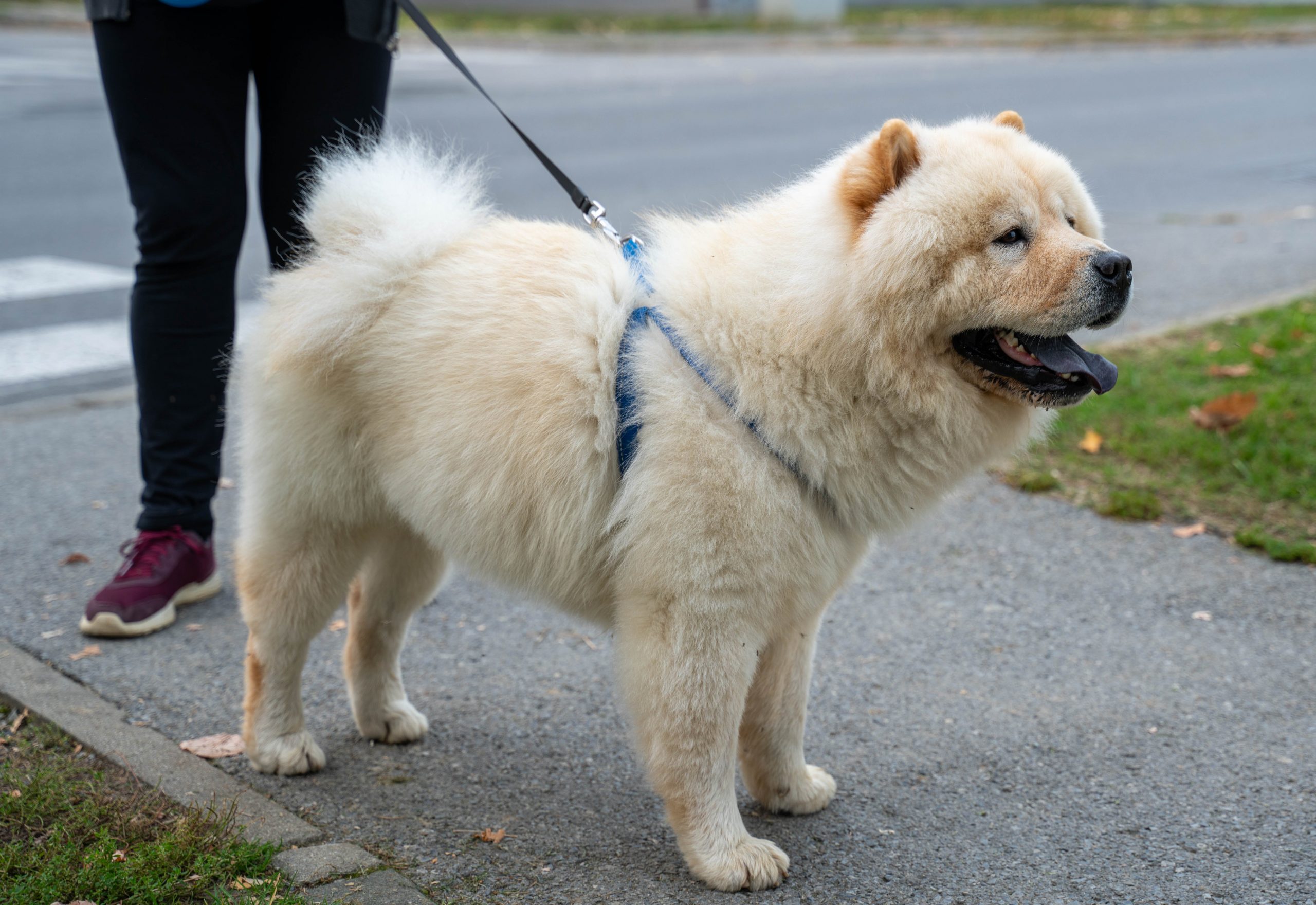
 Toledo, United States.
Toledo, United States.
